
“Opportunities to escalate therapies that work well in stage IV into what we consider a more curative setting...are exactly what we need to be looking for.” –Mark A. Socinski, MD

Your AI-Trained Oncology Knowledge Connection!


“Opportunities to escalate therapies that work well in stage IV into what we consider a more curative setting...are exactly what we need to be looking for.” –Mark A. Socinski, MD

Final data from the phase 2 ATLEP trial showed high response rates with a combination of lenvatinib and pembrolizumab in patients with anaplastic and poorly differentiated thyroid cancer.
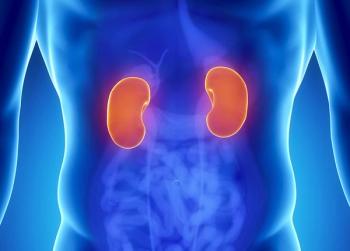
Findings from the phase 2 KEYNOTE-B61 trial demonstrated promising efficacy with a combination of pembrolizumab and lenvatinib in the frontline treatment of non–clear cell renal cell carcinoma.

Data from the phase 1 METEOR-1 trial showed modest efficacy with GSK3326595, a PRMT5 inhibitor, in patients with advanced solid tumors.

Howard S. Hochster, MD, considers drug price negotiation in this month's Letter to the Readers.

A pooled exploratory analysis of phase 3 trials found statistically significant progression-free survival and overall survival benefits with ribociclib/endocrine therapy for patients with hormone receptor–positive, HER2-negative breast cancer and visceral metastases.

Findings from the phase 1b/2 KRYSTAL-1 trial showed encouraging responses with adagrasib in patients with advanced KRAS G12C-mutant colorectal cancer.

Treatment with fam-trastuzumab deruxtecan-nxki yielded promising patient-reported outcomes in patients with hormone receptor–positive, HER2-low metastatic breast cancer, according to Naoto Ueno, MD, PhD.
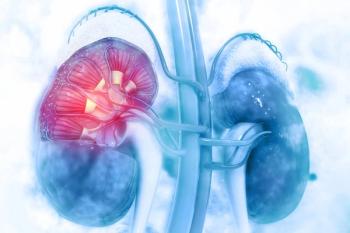
Data from the phase 2 LITESPARK-003 trial demonstrated antitumor activity and a well-tolerated safety profile with belzutifan plus cabozantinib in patients with clear cell renal cell carcinoma.

Health-related quality of life data from the phase 2 KEYNOTE-522 trial did not show ill effects of pembrolizumab vs placebo in patients with triple-negative breast cancer.
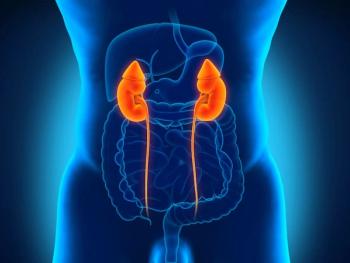
Results from the LITESPARK-003 trial showed continued antitumor activity after 2 years with belzutifan plus cabozantinib.

Findings from the phase 3 PRESTO trial indicated that patients with high-risk biochemically recurrent prostate cancer may derive benefit from treatment with androgen deprivation therapy intensification and apalutamide.

Circulating tumor DNA levels could be a potential prognostic tool for predicting outcomes in diffuse large B-cell lymphoma.
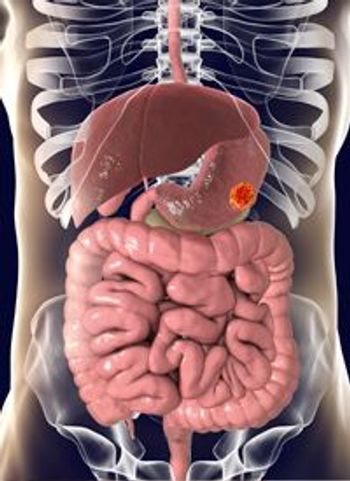
Patients with mismatch repair deficient (dMMR) colon cancer experienced a high rate of major pathologic complete response following treatment with nivolumab and ipilimumab for 4 weeks.
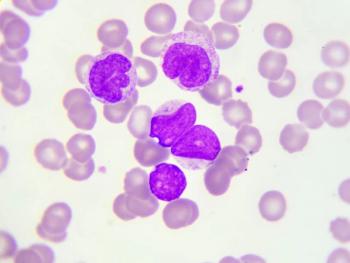
In patients with non-germinal center B cell–like diffuse large B-cell lymphoma, the combination of orelabrutinib plus R-CHOP revealed an overall response rate of 86.4%.
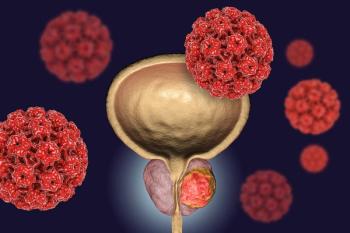
Findings from Cohort K of the EV-103 trial demonstrated a 64.5% overall response rate with enfortumab vedotin plus pembrolizumab in metastatic urothelial cancer.

Findings from the phase 2 BIONIKK trial demonstrated an association between treatment efficacy and increased in situ and immune expression.

Based on evidence from the phase 3 ADVANCE and RECOVER trials, the FDA has approved eflapegrastim-xnst injection to decrease the incidence of infection related to febrile neutropenia for patients with non-myeloid malignancies who are receiving treatment with myelosuppressive anti-cancer agents known to be associated with clinically significant neutropenia.

First results from the RADICALS-HD trial demonstrated improved metastasis-free survival with 2 years of androgen-deprivation therapy (ADT) plus radiotherapy in men with prostate cancer.

Patients with high-risk resectable melanoma experienced the highest event-free survival benefit when pembrolizumab was administered in the neoadjuvant settings vs the adjuvant setting

Trastuzumab deruxtecan demonstrates clinically meaningful benefit in patients with non¬–small cell lung cancer harboring HER2 mutations, according to results from the DESTINY-Lung02 trial.

Results from the phase 3 IPSOS trial showed a nearly doubled rate of 2-year overall survival with atezolizumab in patients with advanced non–small cell lung cancer.

Findings from the phase 1/2 ReFocus study highlighted that RLY-4008 is a potentially transformative agent for the treatment of FGFR inhibitor–naïve, FGFR-mutant cholangiocarcinoma.

The risk for disease progression or death was reduced by 27% with the addition of cabozantinib to nivolumab plus ipilimumab in patients with previously untreated renal cell carcinoma.

Result from the phase 3 KEYLINK-010 trial showed no statistically significant improvement in radiographic progression-free survival and overall survival when pembrolizumab and olaparib were used to treat molecularly unselected, previously treated metastatic castration-resistant prostate cancer vs novel hormonal agents.

Findings from the phase 3 CodeBreaK 200 trial show improved progression-free survival with sotorasib vs docetaxel in previously treated KRAS G12C-mutant non–small cell lung cancer.

Results from the phase 3 CANOPY-A trial failed to show improved disease-free survival with adjuvant canakinumab in completely resected non–small cell lung cancer.

Tucatinib as monotherapy and in combination with trastuzumab supported further investigation of the regimens in patients with metastatic HER2-positive colorectal cancer.

The final readout of the phase 2 TITAN-RCC trial highlighted an improvement in responses following an individualized regimen of nivolumab and ipilimumab boost after single-agent nivolumab in patients with advanced renal cell carcinoma.

Neoadjuvant treatment with cemiplimab led to near or complete disappearance of cutaneous squamous cell carcinoma in almost 64% of patients set to undergo surgery.